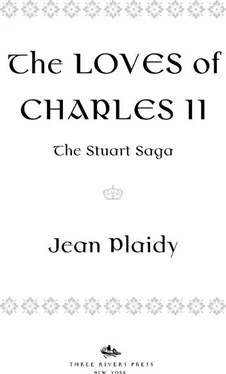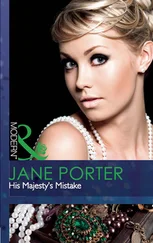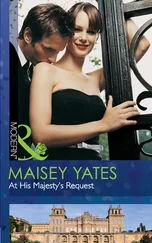Виктория Холт - A Health Unto His Majesty
Здесь есть возможность читать онлайн «Виктория Холт - A Health Unto His Majesty» весь текст электронной книги совершенно бесплатно (целиком полную версию без сокращений). В некоторых случаях можно слушать аудио, скачать через торрент в формате fb2 и присутствует краткое содержание. Жанр: Исторические любовные романы, на английском языке. Описание произведения, (предисловие) а так же отзывы посетителей доступны на портале библиотеки ЛибКат.
- Название:A Health Unto His Majesty
- Автор:
- Жанр:
- Год:неизвестен
- ISBN:нет данных
- Рейтинг книги:4 / 5. Голосов: 1
-
Избранное:Добавить в избранное
- Отзывы:
-
Ваша оценка:
- 80
- 1
- 2
- 3
- 4
- 5
A Health Unto His Majesty: краткое содержание, описание и аннотация
Предлагаем к чтению аннотацию, описание, краткое содержание или предисловие (зависит от того, что написал сам автор книги «A Health Unto His Majesty»). Если вы не нашли необходимую информацию о книге — напишите в комментариях, мы постараемся отыскать её.
A Health Unto His Majesty — читать онлайн бесплатно полную книгу (весь текст) целиком
Ниже представлен текст книги, разбитый по страницам. Система сохранения места последней прочитанной страницы, позволяет с удобством читать онлайн бесплатно книгу «A Health Unto His Majesty», без необходимости каждый раз заново искать на чём Вы остановились. Поставьте закладку, и сможете в любой момент перейти на страницу, на которой закончили чтение.
Интервал:
Закладка:
Such a tragedy coming so soon after his restoration—Henry had died in September, a few weeks after the trouble with James had blown up, and little more than three months after the King’s return to England—dampened all pleasure, and even the sight of his beloved sisters could not entirely console him.
Minette he loved dearly—perhaps more dearly than any other person on Earth—and it was delightful and gratifying to receive her in his own country, which had now acknowledged him its King, to do honor to the lovely and sprightly girl who had suffered such humiliation as a poor relation of the French Court for so long. But with Minette came her mother; Charles smiled now at the thought of Henrietta Maria, the diminutive virago, eyes flashing, hands gesticulating, longing to give James a piece of her mind and assuring everyone that she would only enter Whitehall when Anne Hyde was ordered to leave it.
And to Charles had fallen the task of placating his mother; this he did with grace and courtesy, and some cunning. For she was dependent upon his bounty for her pension, and she had been made to know that the obstinacy of her eldest son still existed beneath the easy-going manners, and that when he had made up his mind that something should be done, he could be as firmly fixed in his purpose as that little boy who had refused to take his physic and who had clung to the wooden billet which it had been his custom as a small boy to take to bed with him each night.
So he had triumphed over his mother as gently as he could. “Poor Mam!” he told his little Minette. She has a genius for supporting lost causes and giving all her great energy to that which can only bring sorrow to herself.” He had insisted on her receiving James’ wife in public.
And then almost immediately the dread smallpox, which had carried off his brother Henry, had smitten his sister Mary, and in the space of a few short months, though he had regained his throne, he had lost a beloved brother and sister.
How the family was depleted! There was now his mother—but they had never really loved each other—his brother James—and James was a fool and a coward, as was obvious from his treatment of Anne Hyde—and Minette, his youngest sister, the best loved of them all; yet she was rarely met and the water divided them. He had said farewell to her but a few days ago, but how did he know when he would see her again? He would have liked to bring her back to England, to have kept her with him. Dear Minette! But she had her destiny in another country; she had a brilliant marriage to make; he could not ask her to forsake her affianced husband and come to England merely to be the King’s sister. There was scandal enough concerning them already. Trust the malicious tongues to see to that!
So it was small wonder that he felt melancholy at times, for he was a man who liked to surround himself with those he loved. He could remember happy days when he had been the member of a family; and it had been a happy family, for there was affection between his parents, and his father was a noble man and loving father; but that was before he had found it necessary to oppose his overbearing mother; he remembered her from then as ever demonstrative, quick to punish but full of an affection which was outwardly displayed by suffocating embraces and fond kisses. Yes, Charles was a man who needed love and affection; he longed to have his family about him. He suffered their loss deeply as one by one they left this life.
He remembered now, as he bent to examine a herb in his Physic Garden, the terrible anxiety he had suffered when he had believed that Minette herself was about to die. Stunned by the loss of a brother and sister he had thought that life was about to deal him the most brutal blow of all. But Minette had not died; she had lived to return to France, where she would marry the brother of the French King and every week there would be, as in the old days, loving letters from her to remind him of the bond between them.
Yes, he still had Minette, so life was not all melancholy; far from it. He had his crown and he had his beloved sister, and there was much merriment to be had in the Court of Whitehall. A man could not have pleasure all the time, for if he became too familiar with it he would be less appreciative of it. The loss of his dear brother Henry and sister Mary had made him all the more tender to his sweet Minette.
There were other matters which gave him some uneasiness. Were the people a little disappointed? Had they hoped for too much? Did they think that with the King’s restoration all the old evils would be wiped out? Did they look upon the King as a magician, who could live in perpetual royal state and give his people pageants, restore estates, abolish taxes—and all because he had found some magic elixir in his laboratories? Oh, the many petitioners who hung about in the stone gallery of Whitehall which led to the royal apartments! How many there were to remind him that they had been loyal supporters during the years of exile! “Sire, it was due to me … to me … to me … that Your Majesty has been restored.” “Sire, I had a great house and lands, and these were taken from me by the Parliament….” “Sire, I trust that Your Majesty’s restoration may be our restoration….” It was easy—too easy—to promise. He understood their different points of view. Of course he understood them. He wished to give all they asked. It was true that they had been loyal; it was true that they had worked for his restoration and lost their estates to the Parliament. But what could he do? How could he confiscate estates which were now the property of those who called themselves his loyal subjects; how could he restore property which had been razed to the ground?
It was his habit almost to run through the stone gallery to avoid these petitioners. They would drop on their knees as he passed, and he would say quickly: “God bless you! God bless you!” before he strode on, taking such great paces that none could overtake him unless they ran. He dared not pause; if he did, he knew he would be unable to stop himself making promises which he could not fulfil.
If they would but let him alone to enjoy his pleasures—ah, then he would forget his melancholy; then he would practice that delightful habit of sauntering through his parks followed by his spaniels and surrounded by gentlemen who must all be witty and ladies who need not be anything but beautiful. To listen to the sallies (and he had made it clear that they could disregard his royalty in the cause of wit) and to feast his eyes on the graceful figures of the ladies, whisper to them, catch their hands, suggest a meeting when there might not be quite so many about them to observe their little tendernesses—ah, that was all pleasure. He wished that he could indulge in sauntering more often.
In November the army had been disbanded at Hyde’s wish. Charles was sorry to see that happen, but whence would come the money to keep it in existence? It seemed to the King that as a monarch he was almost as poor as he had been as an exile, for, although he had a larger income, his commitments had multiplied in proportion. Monk kept his regiments—the Cold-stream and another of horse; and that was all, apart from another regiment which was formed from the troops which had been brought from Dunkirk. Charles christened this regiment the Guards and from it planned to build a standing army.
But there was one other matter his ministers were determined on, as fiercely as on that of reducing expenses, and it was one which gave him as little pleasure; this was revenge.
Charles alone, it seemed, had no wish for revenge. The past was done with; his exile was over; he was restored; let all the country rejoice in that. But No! said his ministers. And No! said his people. Murder had been done. The King’s father was Charles the Martyr, and his murder should not go unpunished. So there had been a trial, and those men who were judged guilty were sentenced to the terrible death which was accorded to traitors.
Читать дальшеИнтервал:
Закладка:
Похожие книги на «A Health Unto His Majesty»
Представляем Вашему вниманию похожие книги на «A Health Unto His Majesty» списком для выбора. Мы отобрали схожую по названию и смыслу литературу в надежде предоставить читателям больше вариантов отыскать новые, интересные, ещё непрочитанные произведения.
Обсуждение, отзывы о книге «A Health Unto His Majesty» и просто собственные мнения читателей. Оставьте ваши комментарии, напишите, что Вы думаете о произведении, его смысле или главных героях. Укажите что конкретно понравилось, а что нет, и почему Вы так считаете.












